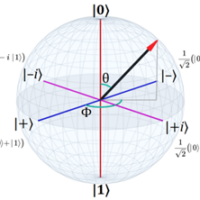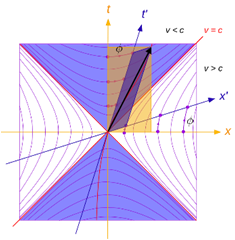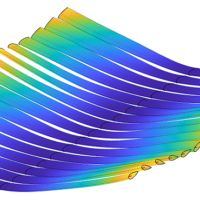
BARTHEYE Olivier
Assistant professor in Computer Science and Artificial Intelligence
Olivier Bartheye is an assistant professor in computer science at the French Air Force and Space Academy at Salon-de-Provence since 2019. His research concerns explainable artificial intelligence, symbolic artificial intelligence, autonomous agents, machine decision, action planning, representations of sense-making and very recently quantum computing. Formerly, he was an assistant professor in computer science at the French Ground Force Academy in Brittany, in Guer-Coëtquidan from 2001 to 2019. After his PhD about action planning, carried out from 1989 to 1994, at the Central Commission of Nuclear Energy, he started in 1995 his industrial carrier as a software engineer until 2001.He was coordinator of three international research and innovation projects, including two in cybersecurity. He has also written a prototype action plan and is continuing his research into automated decisions to determine what exactly can be delegated to a machine regarding the decision-making process.
Current area of research : In the military field, artificial intelligence techniques must be used according to a special category of use-cases: AI for operational critical systems which are very different from biology use-cases or medicine use-cases. The specific business rules for operational critical systems need to emphasize the notion of trust on the result performed by an AI component to perform a decision. The trust process concerns the contractualization of human-machine interactions.
Trust is ensured by explainable AI or sensemaking AI, or equivalently, understandable results resulting from the calculation of any type of machine learning process.Thus, predictive models can feed action models and conversely, action can feed prediction since a necessary action plan introduces new situations to learn after the execution of the action plan.To connect the operational part and the machine learning part, it is necessary to determine the best candidate machine learning model which would ultimately enable a sequence of actions to be initiated, whether automatic or not.Faced with the wave of digitalization in society, we have the capacity, thanks to this duality, to answer questions concerning the automation of IT processes and the balancing of roles between humans and machines on critical or sensitive tasks.
By increasing the degree of autonomy of machines as virtual agents, we can compensate for human failures, but this autonomy must be controlled and validated to be included in autonomous devices.The validation effort located precisely on the human-machine interface requires explaining the role of the artificial intelligence components and at the same time explaining the result of the automatic learning process.This is a very broad problem of data management and distribution of roles specific to autonomous system components.These subjects concern the notions of risk analysis, definition of requirements, contractualization in the distribution of roles, rigorous specification and formalized scenarios to clearly delimit these roles.In addition, you must be able to associate the notion of triggering action with the analysis of the situation. In general, feedback loops are complex process sequences due to the high variability of possible scenarios.

Publications :
- P. Pathé, B. Pannetier, O. Bartheye "Enhancing drone abnormal behavior detection using data fusion techniques and dynamic Bayesian network methods". SPIE Defense Sensing technical conferences 21 - 25 April 2024 National Harbor, Maryland, United States
- Bartheye O., Narboni G.A. Retour sur un exemple historique en Prolog III : le remplissage d’un rectangle par des carrés de tailles distinctes, forthcoming, ROIA 2024.
- Bartheye O., Chaudron L., Lawless W.Self-Visualization for the Human-Machine Mind-Body Problem, forthcoming, book chapter Elsevier, 2024.
- Bartheye O., Chaudron L. The Arithmetic of Machine Decision : How to Find Symmetries inside a Complete Chaos, Proceedings of the AAAI 2024 Spring Symposium SeriesMarch 25-27, 2024, Stanford University, Stanford, California, 2024
- Bartheye O., Munoz P., Chaudron L.A Symmetrical Trust Teaming Model, Proceedings of the AAAI 2024 Spring Symposium SeriesMarch 25-27, 2024, Stanford University, Stanford, California, 2024
- Gicquel, L., Bartheye, O., Fabre, L. AI in Flight: Advancing Aviation Safety through Real-Time Monitoring of Pilots' Neuropsychological States, ICCAS 2024, International Conference on Cognitive Aircraft Systems, ISAE-SUPAERO, Toulouse, May 16th-17th
- Chaudron L., Bartheye O., Fabre L. 'Operational Reasoning’Strikes Back in Aeronautics and Space, ICCAS 2024, International Conference on Cognitive Aircraft Systems, ISAE-SUPAERO, Toulouse, May 16th-17th
- Chaudron L., Bartheye O.,Violland A. The Metaloop Paradigm in Education, 5th Global Conference on Education and Teaching, Paris, 1 Dec 2023.
- Pathe P, Pannetier B, Bartheye O.Abnormal Behavior State-of-the-art for UAVs Detection in Complex Environments, actes du colloque SET-315 Research Symposium : Detection, Tracking, ID and Defeat of Small UAVs in Complex Environments, Copenhague, Danemark, 9-10thOct 2023.
- Massé E, Bartheye O, Fabre L. Classification of Electrophysiological Signatures With Explainable Artificial Intelligence: The Case of Alarm Detection in Flight Simulator. Front Neuroinform. 2022 Jun 16;16:904301. doi: 10.3389/fninf.2022.904301. PMID: 35784188; PMCID: PMC9243447, 2022.
- Massé E, Bartheye O, Fabre L. How Does Cognitive Fatigue Influence Alarm Detection in Flight Simulator? Classification of Electrophysiological signatures with Explainable IA, ICCAS 2022, ISAE-SUPAERO,ToulouseJune 1st-2nd
- Bartheye O. Le défi du codage d’une autonomie décisionnelle dans les systèmes embarqués. Les enjeux de l’autonomie des systèmes d’armes létaux, éditionsPedone, ISBN : 978-2-2330-1019-3, 2022
- Chaudron L., Bartheye O., Christon L., Violland A. A MetaCognitive Conceptual Continuum. In: 4th Artificial Intelligence and Cloud Computing Conference. by AICCC. Kyoto, Japan, Dec 17–19, 2021.
- Bartheye O., Chaudron L. Principles of an Accurate Decision and Sense-Making for Virtual Minds. in book: Engineering Artificially Intelligent Systems, Ed. Bill Lawless, LNCS 13000, 2021.
- Bartheye O., Chaudron L. Human-Machine Sense-Making in Context-Based Computational Decision, Elsevier, Ed. Bill Lawless; 2020
- Bartheye O., Chaudron L. Algebraic Modeling of the Causal Break and Representation of the Decision Process in Contextual Structures, chapter in book Computation Contexts, CRC, Ed. Bill Lawless; 2018





















